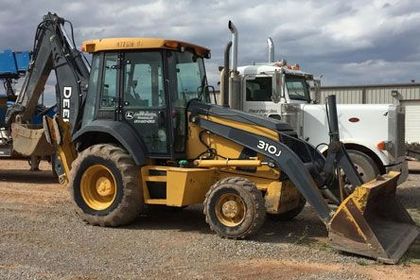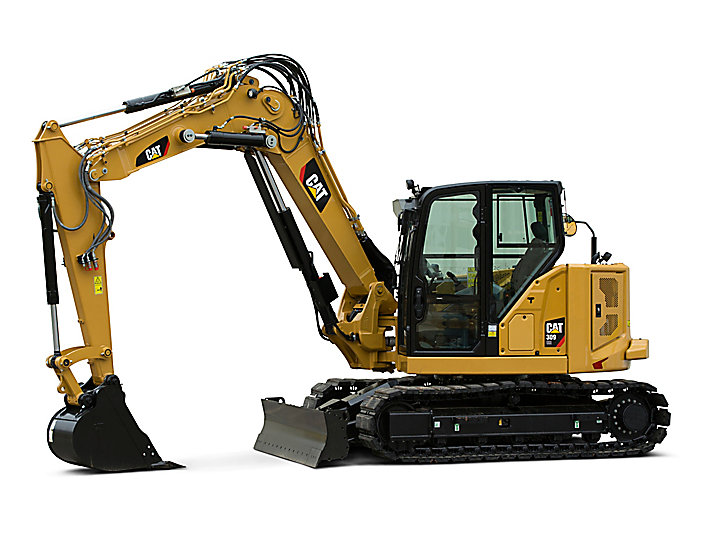A Comprehensive Overview to the Various Kinds of Oil Field Equipment and Pipeline Equipment Available
The oil and gas industry depends heavily on specific equipment for effective removal and transportation. Different kinds of machinery, from piercing rigs to storage containers, play vital functions in this intricate process. Each item of devices offers distinct functions that add to overall operational success. Recognizing these components is important for any person associated with the market. As the sector develops, so as well do the modern technologies that support it. What developments are on the horizon?

Drilling Rigs: The Foundation of Oil Exploration
Drilling rigs act as the vital equipment in the domain of oil expedition, allowing companies to accessibility hydrocarbon books hidden deep below the Earth's surface area. These rigs come in numerous types, including land rigs, offshore rigs, and mobile devices, each made to operate in details atmospheres. Equipped with innovative technology, piercing rigs can penetrate geological formations with accuracy, making sure reliable source extraction. The architectural stability and functional capabilities of these rigs are crucial, as they have to stand up to severe conditions and considerable pressures. In addition, the choice of an exploration rig influences the general task cost and timeline, making it an essential factor to consider for oil companies seeking to enhance their expedition efforts and maximize efficiency in their procedures.
Pumps: Important for Fluid Motion
In the oil extraction process, the function of pumps is considerable, promoting the activity of liquids throughout numerous phases of manufacturing. Pumps are crucial for transporting crude oil, water, and other fluids from below ground tanks to the surface and afterwards through pipes to refineries. They can be found in numerous types, including centrifugal, positive displacement, and completely submersible pumps, each offering certain functions based on the fluid characteristics and functional needs. Centrifugal pumps are generally made use of for their effectiveness in high-flow applications, while positive variation pumps succeed in managing viscous fluids. The choice of pump impacts total effectiveness, operational safety and security, and upkeep costs. Correct selection and upkeep of pumps are crucial for optimizing manufacturing and lessening downtime in oil field procedures.
Valves: Controlling Flow and Pressure

Shutoffs play an important duty in handling the circulation and stress of fluids within oil fields and pipelines. Numerous kinds of valves serve unique applications, each designed to satisfy certain features fundamental for effective operation - Superior Rentals Contact. Understanding the qualities and uses of these valves is necessary for enhancing system performance and security
Kinds of Valves
Necessary parts in oil area procedures, shutoffs play a crucial duty in regulating the circulation and stress of liquids within pipelines and devices. Various kinds of shutoffs are made use of to fulfill the diverse requirements of oil and gas production. Common kinds consist of entrance valves, which offer a straight-line flow and minimal stress decrease; globe valves, recognized for their throttling abilities; and ball valves, identified for their fast on/off control. Additionally, check valves protect against heartburn, while butterfly valves supply a light-weight option for regulating circulation. Each shutoff type is made with details materials and configurations to hold up against the extreme conditions frequently found in oil areas, making certain dependability and efficiency in procedures. Understanding these kinds is vital for effective system administration.
Valve Applications and Functions
While numerous sorts of valves offer distinct objectives, their main applications rotate around regulating flow and pressure within oil and gas systems. Shutoffs such as gate, world, and round shutoffs regulate liquid motion, ensuring peak efficiency and safety and security. Gateway valves are generally used for on/off control, giving very little circulation resistance. Globe valves, on the various other hand, deal accurate circulation law, making them appropriate for throttling applications. Sphere shutoffs are preferred for their quick operation and tight securing capabilities. Furthermore, pressure alleviation shutoffs are vital for preventing system overpressure, protecting tools honesty. In general, the proper choice and application of shutoffs boost functional performance, guaranteeing the trustworthy transportation of oil and gas through pipelines and handling centers.
Compressors: Enhancing Gas Transportation
Compressors play a critical duty in the reliable transport of natural gas, making sure that it moves smoothly with pipelines over fars away. These gadgets boost the stress of gas, permitting it to get over rubbing and altitude adjustments within the pipeline system. In addition, compressors assist in the harmonizing of supply and demand, suiting changes in usage and production rates. Various sorts of compressors are used in the sector, consisting of centrifugal, reciprocating, and rotary screw compressors, each offering unique advantages based upon the functional demands. Normal upkeep of these compressors is crucial to optimize effectiveness and decrease downtime, inevitably adding to a trusted gas transport network. Their vital function emphasizes the relevance of compressors in the general oil and gas infrastructure.
Storage Tanks: Safe and Efficient Liquid Administration
Efficient transportation of gas relies upon numerous support group, among which is the appropriate administration of storage containers. These containers play a crucial function in securely including liquids, making sure that functional efficiency is kept while lessening environmental dangers. Created from long lasting products, they are developed to hold up against high pressures and corrosive aspects. Properly sized and tactically situated, storage tanks promote the smooth flow of all-natural gas and various other fluids, protecting against bottlenecks in supply chains. Routine used graders for sale upkeep and monitoring are necessary to spot leakages or architectural concerns, promoting security and conformity with regulatory standards. Eventually, the reliable monitoring of tank is important for the total integrity and like this dependability of the oil and gas sector's liquid handling systems.
Pipeline Equipments: Infrastructure for Transportation
Pipeline systems act as the backbone of the oil and gas market, assisting in the reliable transport of hydrocarbons over vast distances. These systems include various components, including pipes, valves, pumps, and compressors, all meticulously developed to ensure seamless flow. The materials used in pipeline construction, typically steel or high-density polyethylene, are chosen for toughness and resistance to deterioration. Pipeline networks can extend throughout land and water, linking manufacturing sites to refineries and circulation. Furthermore, advanced technology enables real-time surveillance of flow rates and stress degrees, improving operational performance. The critical positioning of these pipelines decreases ecological influence while taking full advantage of resource accessibility, therefore playing a crucial function in meeting power demands globally.
Security Equipment: Making Certain Employee and Environmental Protection
The procedure of pipeline systems, while vital for power transport, additionally presents substantial safety obstacles for employees and the environment. Security equipment plays a substantial role in minimizing these dangers. Personal protective tools (PPE) such as safety helmets, handwear covers, and non-slip footwear safeguards employees from physical hazards. Furthermore, gas discovery systems keep track of for leakages, guaranteeing that unsafe compounds do not posture a threat to try this site workers or the bordering community. Emergency shutdown systems are important for promptly stopping operations during a dilemma, preventing potential catastrophes. Spill control materials, including absorbents and barriers, are essential for decreasing environmental impact. In general, purchasing comprehensive safety equipment is crucial for keeping functional honesty and protecting both workers and the environment in the oil and gas industry.

Regularly Asked Questions
Just how Do I Choose the Right Oil Field Equipment for My Task?
Choosing the ideal oil area equipment entails assessing task specifications, budget plan restraints, and operational demands. Consider elements such as devices dependability, compatibility with existing systems, and the supplier's track record to assure peak performance and safety.
What Are the Upkeep Requirements for Oil Field Equipment?
Maintenance demands for oil area tools consist of normal assessments, lubrication, and prompt repair work. Operators must additionally stick to manufacturer guidelines, screen efficiency metrics, and warranty conformity with safety regulations to improve long life and effectiveness.

How Can I Make Certain Compliance With Environmental Laws?
To guarantee compliance with ecological regulations, business must carry out normal audits, implement ideal practices, purchase training, keep proper paperwork, and remain updated on legislation (Superior Oilfield Rentals oilfield). Collaboration with environmental agencies can likewise boost adherence to policies
What Is the Typical Life-span of Pipeline Equipment?
The ordinary life-span of pipeline equipment usually varies from 20 to half a century, relying on variables such as worldly top quality, environmental conditions, and maintenance practices. Regular assessments can considerably affect durability and functional effectiveness.
Exactly how Do I Safely Deliver Oil Field Equipment to Remote Locations?
Transporting oil field equipment to remote areas calls for mindful preparation, including route assessment, securing permits, making use of ideal vehicles, and ensuring safety and security procedures are followed. Correct training and interaction among crews are essential for effective transport.